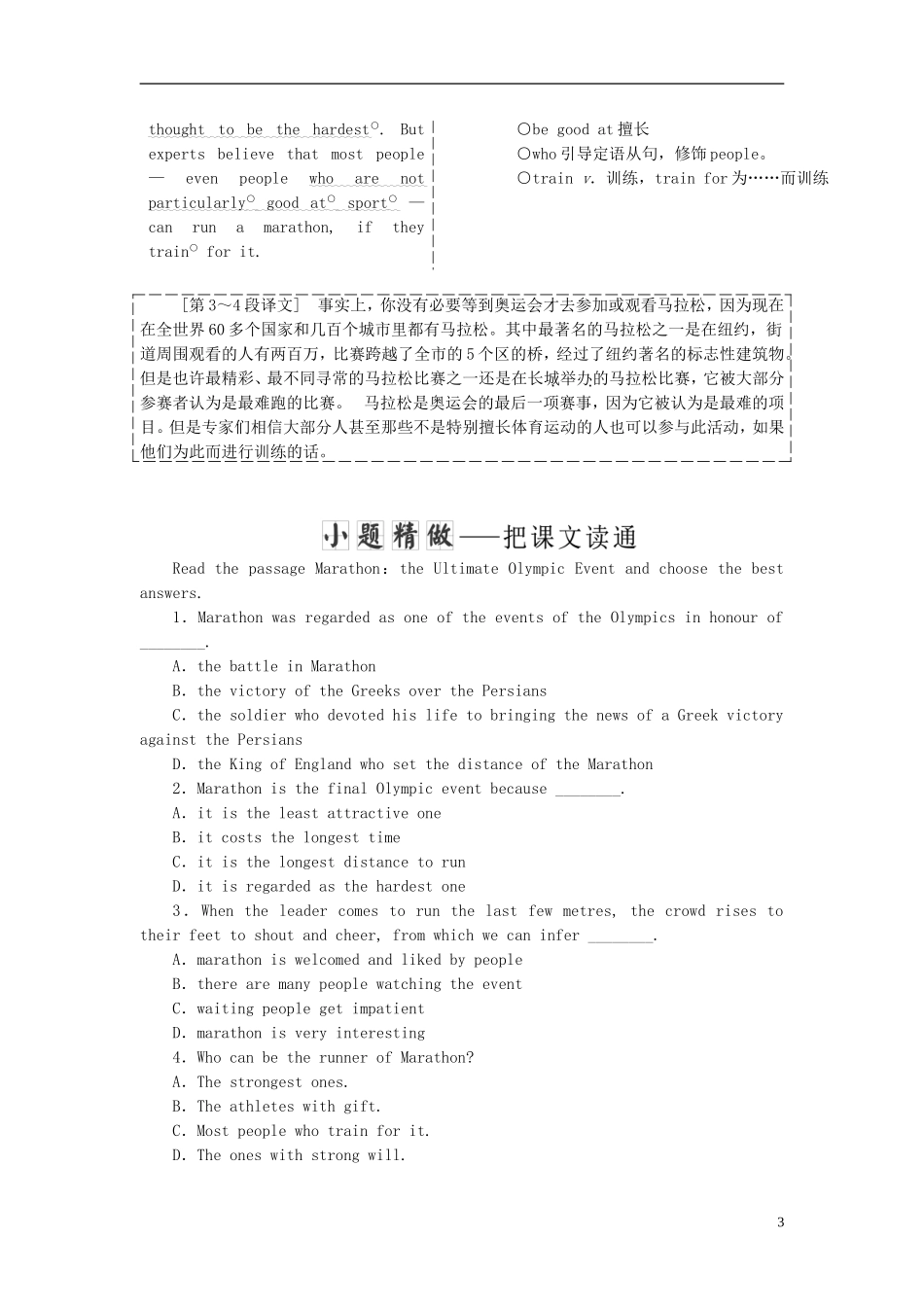Module 5 The Great Sports Personality Section Ⅳ Other Parts of the Module[原文呈现][读文清障] Marathon:the Ultimate① Olympic Event②The final event in the Olympics is the marathon③. It is also usually the most exciting. As ④ the leader comes into the stadium to run the last few metres of the 42 kilometre race, the crowd rises to itsfeet⑤ to shout and cheer. The name of the race comes from⑥ a battle in Ancient Greece. According to⑦ the story, a soldier ran from the scene of the battle⑧ , Marathon, to Athens, to bring the news of a Greek victory⑨ against the Persians. He died just after arriving.①ultimate/' ltIm t/ʌəadj.最后的②event n.比赛项目③marathon/'mær θ n/əən.马拉松④as 引导时间状语从句。⑤rise to one's feet 站起身⑥come from 来源于,来自于⑦according to 根据,由其构成的短语在句中作状语。⑧the scene of the battle 战场⑨victory/'vIkt ri/ən.胜利马拉松:最后的奥运赛事[第 1 段译文]奥运会的最后一个项目是马拉松赛跑。它通常也是最令人兴奋的。每当领先的运动员进入体育馆来跑那全程 42 千米的最后几米时,全场观众都会站起身来向他欢呼喝彩。这项比赛的名字来源于古希腊的一场战争。故事是这样的,一位士兵从马拉松战场跑到雅典,就是为了带回希腊人战胜了波斯人的消息,他到达以后就死了。The marathon has been an Olympic event since the modern games started in 1896⑩. At first⑪ the distance was 40 kilometres — the distance between Marathon and Athens. In 1908, however, at the London Olympics, it was changed. The King of England wanted the runners to leave from his castle⑫ in Windsor and arrive in a new stadium in central London. The distance was 26 miles — about 42 kilometres. In fact, the 1908 marathon ended dramatically⑬. When the leader, an Italian, entered the ⑩since 引导时间状语从句,从句用一般过去时,主句用现在完成时。⑪at first 首先,起初first...


